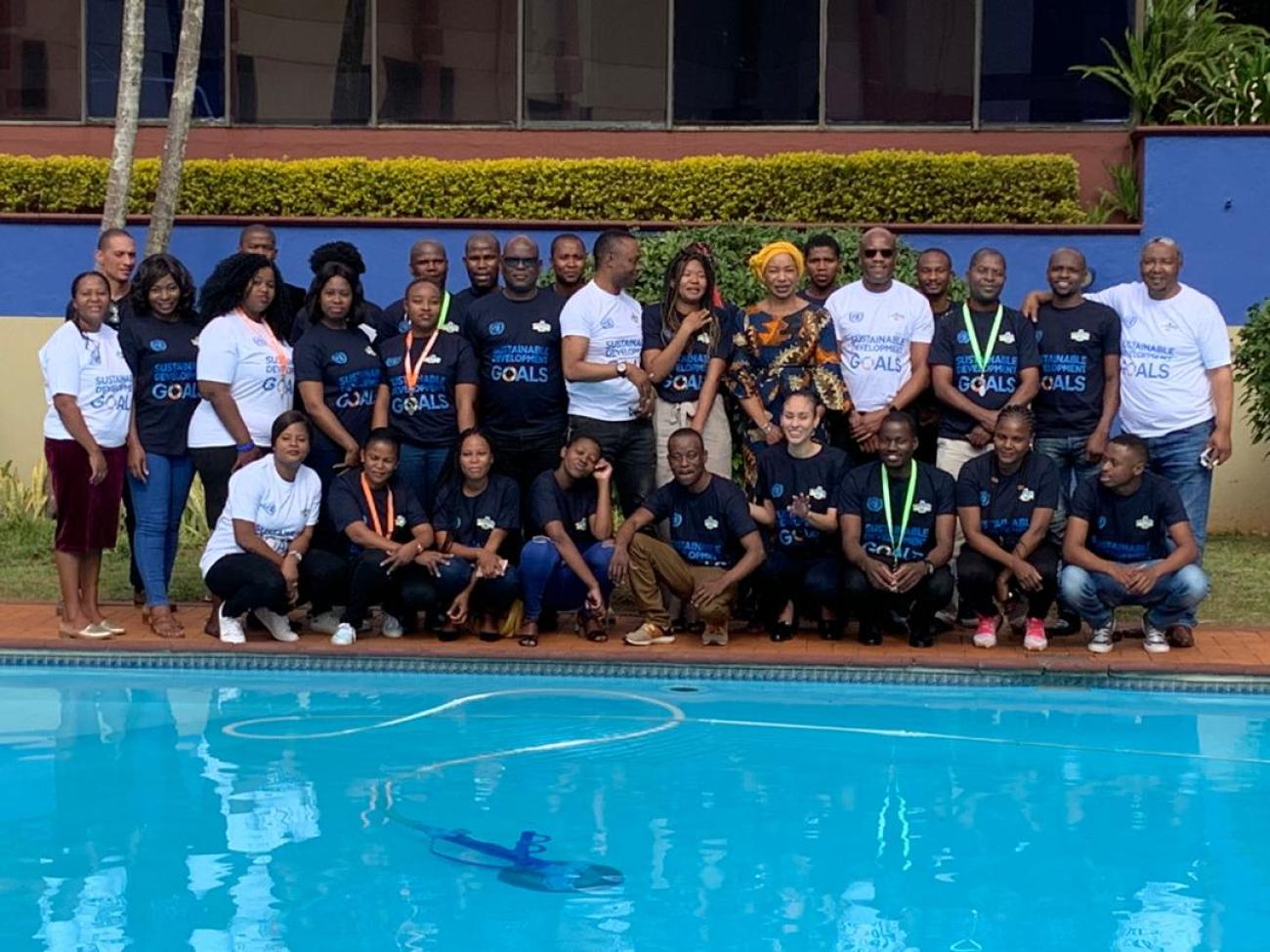Over 35 journalists have committed to deepen their involvement in promoting and advancing the 2030 Sustainable Development Agenda.
More than 35 journalists from all media houses in Eswatini have committed themselves to deepen their engagement in promoting and advancing the 2030 Sustainable Development Agenda and its Sustainable Development Goals (SDGs).
In a statement dubbed the Piggs Peak Declaration issued at the end of three-day workshop on journalism ethics and human rights-based reporting held at Piggs Peak Hotel in Eswatini from 15-17 August, the journalists pledged to ensure professionalism and to raise greater awareness among the public on Eswatini’s development plan.
“The theme of this training, ‘Journalism Ethics & Human Rights-based Reporting’ is intended to protect the professional and ethical standards of Emaswati journalists by giving them the tools to report adequately on information that is primarily in the public interest such as SDGs, which affect or impact the life of each and every Emaswati,” Nathalie Ndongo-Seh, the UN Resident Coordinator in Eswatini told participants at the opening of workshop.
The Head of the Journalism and Mass Communication Department at the University of Eswatini, Dr. Maxwell Mthembu, facilitated the training with support from the UN Communications Group, the UN Information Centre in Pretoria as well as Limkokwing University. The training focused on journalism ethics as well as writing techniques for reporting on SDGs, gender-based violence and children rights.
The training is part of on-going initiatives to promote partnerships and build media capacity between the UN family in Eswatini and local media houses in an effort to contribute to the advancement of SDGs.
In a statement delivered by her Principal Secretary, Maxwell Masuku, the Minister of Information and Communications Technology, Her Royal Highness Princess Sikhanyiso, said the initiative had come at the right time when the media needed to play a greater role in advancing the country’s development agenda. She urged the media to remain true to their fundamentals of existence, which are to inform, to educate and to entertain and warned against manipulating and indoctrinating audiences with skewed and unethical ideologies that contradict beliefs and values of society.
The training was organised under the auspices of the Ministry of Information and Communications Technology with support from the United Nations in Eswatini.



















